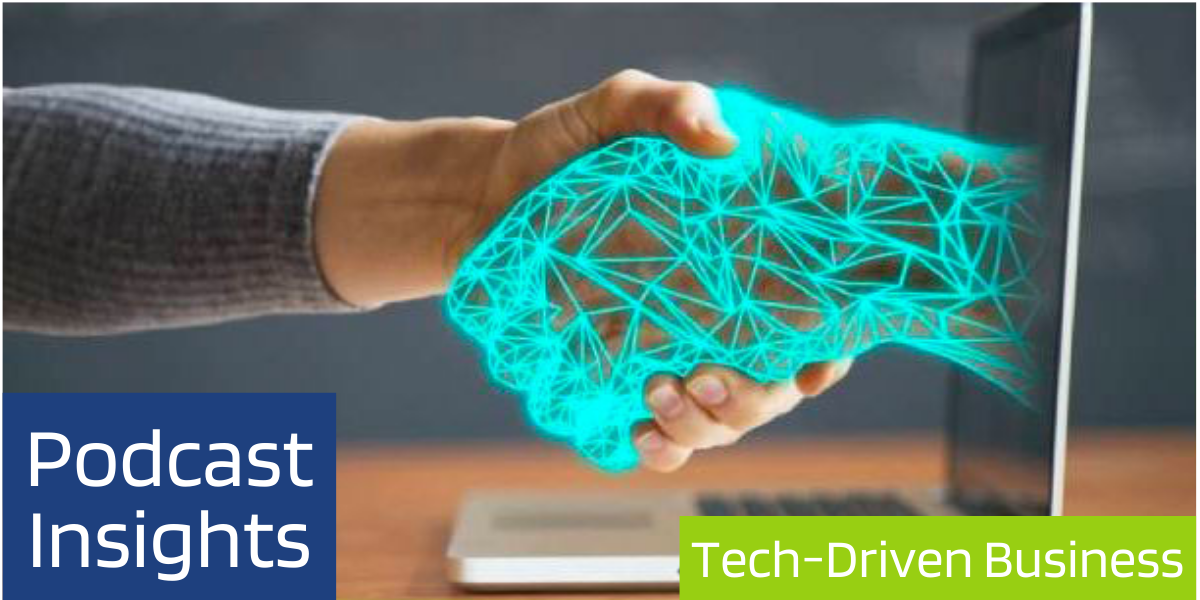By Mariyah Saifuddin

This article highlights a two-podcast series from a year ago, featuring industry author and consultant Bill Newman talking about the Future of Work. We also explore how this topic has grown in importance since the start of the pandemic.
What is “The Future of Work”? SAP uses this term to talk about the changing face of a multigenerational workforce, which has gone through monumental shifts since the start of the pandemic in 2020.
Bill Newman, who is SAP industry executive advisor, points out that in the future the vast majority of the workforce may not have to go to an assembly line anymore. Just a year ago, Newman talked with Mustansir Saifuddin in a multi-part podcast series addressing this issue (see linked podcasts below).
AI for Human Resources
SAP is supporting customers in achieving this next level of work in the manufacturing sector, where AI and remote work are now dominantly featured. By 2019, more than 85 percent of major U.S. firms were using artificial intelligence for HR solutions.
There’s also human capital management (HCM), a broad set of practices and applications for recruiting, managing, and developing a company’s workforce. SAP’s HR software integrates processes and competencies throughout the employee lifecycle.
Talent Management System
As Newman points out in the podcasts, this new workforce landscape presents challenges that require strategy in addition to smart software. SAP’s Talent Management System (TMS) is an integrated software platform that supports core talent management processes such as recruitment, employee onboarding, performance management, learning and professional development, compensation management and succession planning.
When considering the needs of millennials — who now make up more than 50 percent of the workforce in automotive and other manufacturing industries — Newman says it requires a “high bandwidth communications and very well integrated systems, people monitoring and managing active manufacturing systems without having to be fully on site.” In the future, the vast majority of the workforce may not have to go to the assembly line anymore. It is about taking technology to the next level in the actual product build part of manufacturing business.
Interested in more Tech-Driven Business podcasts? You can listen here
About Bill Newman
 William Newman is an industry executive advisor (chief) for SAP’s Customer Innovation Office. He has more than 35 years of executive leadership, strategy, consulting, practice management experience balanced with extensive public speaking and higher education experience.
William Newman is an industry executive advisor (chief) for SAP’s Customer Innovation Office. He has more than 35 years of executive leadership, strategy, consulting, practice management experience balanced with extensive public speaking and higher education experience.
A former leadership team member for Volkswagen’s IT division, he is the author of two books on enterprise performance and has worked with many OEMs and suppliers across the automotive industry.
Tips for today's workforce
- A long-term career for a millennial is likely three to five years with one company.
- Provide workforce members with a very clear progression of activities or roles possible for them so they can continue to learn and grow within the organization.
- Spend time looking at your transition plans that you may have put to the side because of COVID-19.
- Prepare management plans and transition plans in case someone leaves.
- Understand how to keep your workforce motivated. Who are the people and what do they want to do?
- Be ok with team members spending only a couple of years with you. Find them the right opportunity to learn and grow so that they can either decide to stay or be really great ambassadors for you if they decide to go work for a customer.

